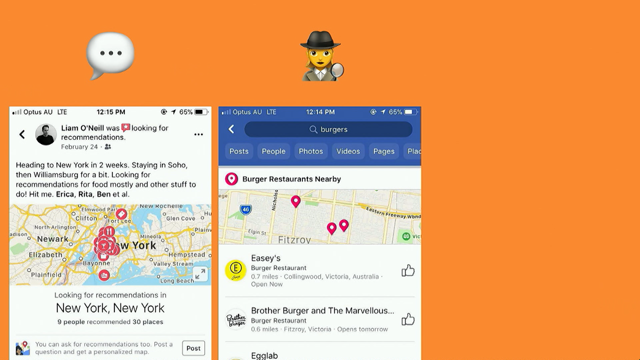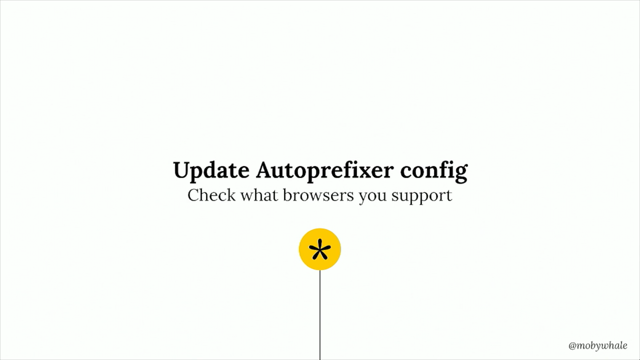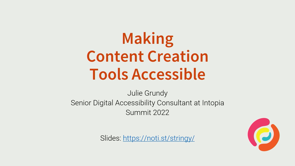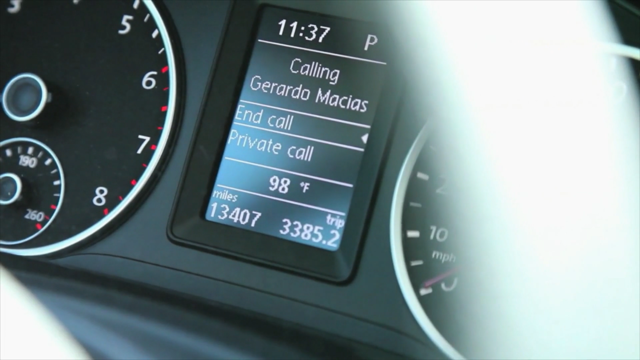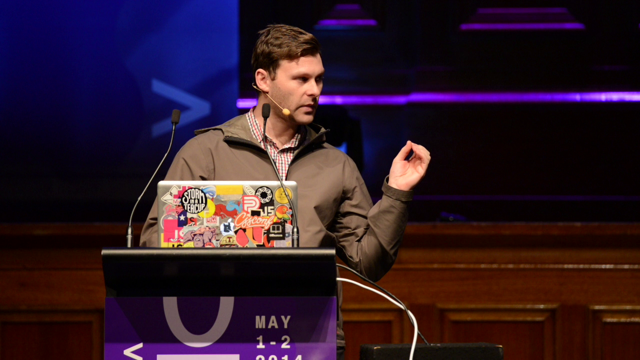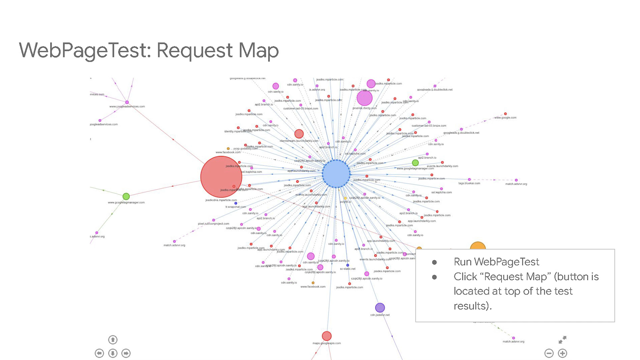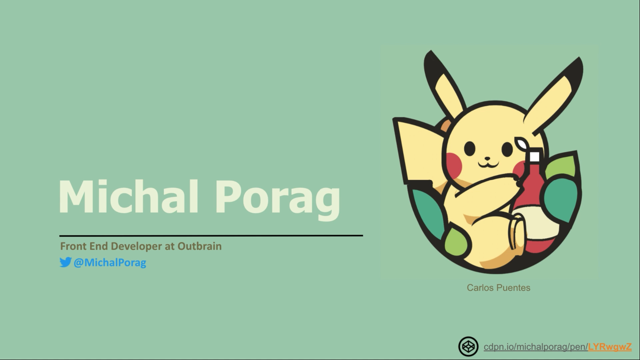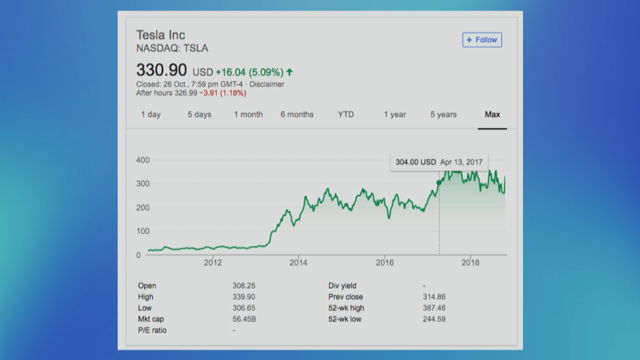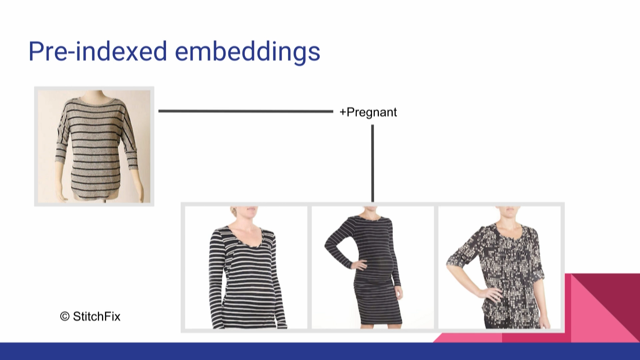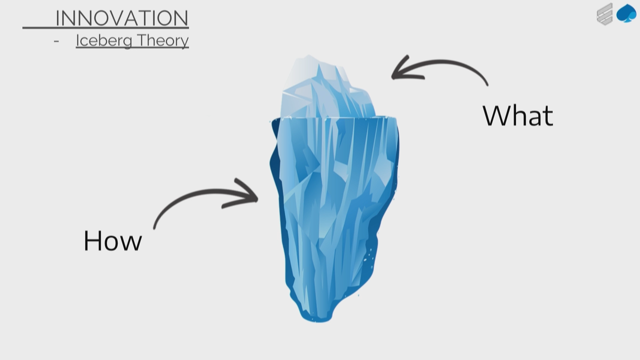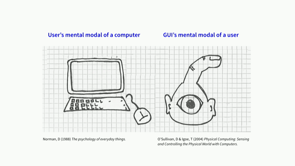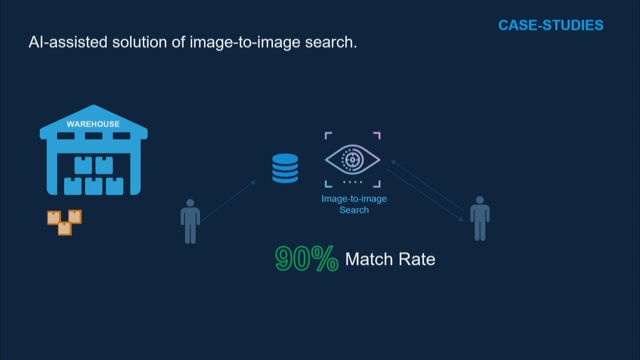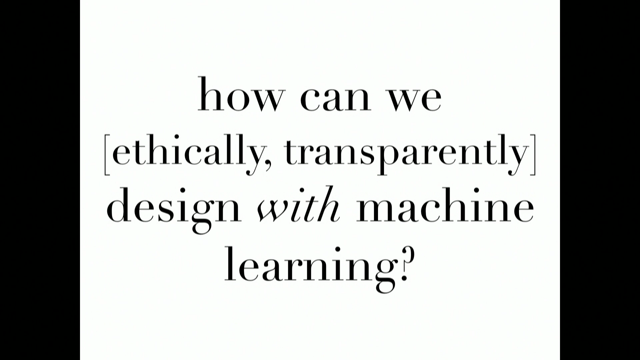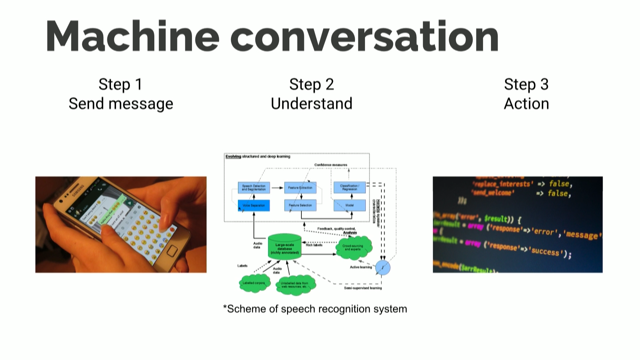
(snappy music) - [Hugo] Hi everyone, thanks for having me. I'm just checking how that work forwards.
Okay, first of all I want to apologise for terrible accent. So yeah, English is not my first language.
So yeah, so my name is Hugo.
I'm the co-founder of Geom Chat and Dystech spending most of my time in Dystech now and what we what we try to achieve is to like you said, Tim, build diagnosis system for kids with dyslexia and dysgraphia using machine learning techniques.
So I've been working for about four years now in start-ups all of which including product with AI, product with sensors And...
Cool. I think I think we all know that we can now speak to machine, and it's pretty cool.
And we can do lot of things pretty fast now I mean when I go home, I ask Alexa to switch on my light. I mean when I write an email on Gmail my sentence being automatically completed.
So it's pretty awesome and and I mean, Siri is remembering stuff that otherwise I wouldn't think about.
And so when we think about this we can also think about bandwidth where we actually give information to machine and the machine process this information and give result. And the [epotion?] of Voice is pretty interesting. So this is basically the average typing speed which is 40 word per minute v s Voice which is one hundred and sixty word per minute. So we have actually increasing the the communication with machine by four.
So that, that's pretty amazing I think when I see it in this [spect?] picture.
But I think we still have a problem.
And the problem is this.
Any one of you like fill up one of those sometime? In the audience, anyone raise hand? That's a job application.
This is very boring, I think.
And, and this is a three page PDF, by the way. And...
I've been thinking.
I think form itself is the most basic type of communication, right? When you go home and you know, with your partner asking you, you know, how was your day? It's just a form, but it's not the same way where we actually fill those one up and And there's a real frustration with the online form so what happened here, what's the thing? And here's another example.
This is a form to rent a bike in the city of Brisbon. (sighing) This is the amount of information they're asking about and it's not mobile responsive.
So it's not fun.
I didn't give up last to go on.
But yeah, I mean, we, we-- I think there's some gap here.
So if we think about human conversation basically we can reduce that to three step really. The first one is being sending a message.
The second one is you know, understanding that message. And the third one would be, make an action. Either emotional action, or response or whatever it could be.
The good thing about human conversation is that step two and three, our brain is actually doing the heavy-lifting for us we don't have to think about anything when we have a conversation it's just (snapping fingers) like this I can have a conversation, I can feel emotion straight away there's no processing time, really.
And if we want to have a conversation with a machine it's pretty much the same thing, we have three step. First step, we send a message either by filling out the contact form or by voice. The second one is, you know, the understanding part where machine actually understand the query, maybe a bit of sentiment analysis or intent. And the third part is the action, what does the machine actually do about your query? And basically step two and three dictates the field, NLP, Natural Language Processing. And step two being the natural language understanding and step three being the natural language generation which is on the other side of the spectrum. And so that's the equation basically that would define NLP. Now, I'm gonna talk about NLU for a moment. NLU is, as you guys know, it's been using in industry right now.
You have Siri, there's Alexa, there's businesses who use Chatbots to communicate with the client or internally for their employee.
And it's widely used in industry but it's not-- we're not quite there yet.
And there is some, there is some big challenges in NLU, but also in NLG.
They all sort of relating into each other.
And this is an example that that I'm gonna try and give you to give you an idea of the scope of the challenge, right.
So if everyone in the room read that sentence. By the way, this is a a title of an article from the Time.
If we read that sentence, every one of us we'll understand directly what that mean, right? Now let's say you wanna train a machine to understand that sentence.
The first thing you wanna avoid is thinking that the machine think that it's actually the Pope's baby that steps on gay. Right, what-- And this is where the challenge come in.
You know, there is You know, you have sentence who don't follow, you know don't have the compositional semantics like metaphor, you have the ambiguity problem you know, words that can have different meanings. Or social media, I mean I'm really bad at spelling and every time I'm writing something on Facebook or just texting, you know, my sentence I'm not grammatically correct.
So how does the machine understand that? How-- It's pretty hard.
So there is some big player in the game you guys may know one of-- all of them, maybe. We've got Google with Dialogflow there is RASR NLU IBM Watson, some in the room don't really like them. (laughing) But there is also Microsoft, Alexa and all sort of big player.
But now the question is what if we actually generate natural language, right? So we're actually go opposite of the spectrum instead of, you know, having trying to understand human-like data and trying to understand the intent, the query of natural language and drive that to structural data and make action, we actually go from structured data and generate human-like language.
So, currently in industry so far pardon me if I didn't find all those company but that's the two major company right now that use NLG, there may be other, I'm sorry but I didn't, I just didn't find them.
So Wordsmit, from Automated Insights and Quill from Narrative Science.
They both have a natural language generation platform as a service.
And what they do is basically and they are that can analyse a bunch of data so that could be, you know, five years of financial data from your businesses.
And you can fit this through to their platform and what that does is it will actually generate you know, one or two paragraph describing this data. So it's basically a replacement of business intelligence. Instead of having you know, those dashboard trying to explain the curve and why and what you can actually have a text which you can you can give to anyone and read and understand that data. So it's pretty cool.
And...
The thing is, what could be what could happen if we have something, some sort of AI that actually master natural language processing from the understanding bit but also from the generation bit? So I've made a case study, I hope everyone recognise those guy.
Everyone in the room know Kogan, the business, yeah? Okay, cool.
So, Kogan, they have-- it's an e-commerce website for those of you who don't know and they have more than 80,000 products, right? Each of those product have an average of 260 words description.
That's a lot of word, right? And if we take the average you know, word per minute from a copywriter and the average salary annual salary of a copywriter this is what I came up with.
It's gonna actually take 8,666 hours four years, sorry, this is assuming Kogan is only hiring one copywriter, right? (laughing) And, and it's gonna cost $240,000 just to write the description of for the product. That's a lot of time and a lot of money.
Now let's imagine we have an API, right? Which can analyse an image and generate a description.
A 260 word description.
So I've try and gather around some sort of benchmark saying if we had that sort of system how much would it cost, and how long would it take? And this is what I came up with.
Less than nine minute and less than $10.
So the nine minute is based on Spark NLP which is a natural language processing library this is based on their result on the amount of word processed within a set period of time and $10 is just the Amazon basic one hour good machine to run your algorithm.
So that's pretty big, I mean.
And that, that's just one use in one specific industry. Another one, which I find very amusing and very fun, is the cinema industry.
So a guy called Oscar Sharp, which is a filmmaker had the bright idea of gathering a team of data scientists and filmmaker to build a short-term, short-long-term, long-short term memory R and N, so AI and they've trained that AI on a couple of hundreds science fiction movie script. And what they did is they then use this network to generate a science fiction movie script. Awesome.
And they went a step further, they actually hired a actor and play that movie. So I'm gonna play a small part to you, and yeah. Alright.
Oh, it's not working.
- What are you doing? - I don't wanna be honest with you.
- [Man] You don't have to be a doctor.
- [Woman] (scoffing) I'm not sure.
I don't know what you're talking about.
- I wanna see you, too.
- What do you mean? - I'm sure you wouldn't even touch me.
- [Woman] I don't know what you're talking about. - Principle is completely constructed of the same time. - (laughing) It's all about you to be true. - [Man] You didn't even watch the movie with the rest of the base.
- I don't know.
- I don't care.
- [Woman] I know, it's a consequence whatever you need to know what the presence of the story. I'm a little bit of a boy on the floor.
(disquieting music) (Hugo laughing) - So this is where we have with NLG (laughing) Sort of.
So That's my final slide, by the way.
So.
We've got the online form which are really frustrating and we've got some advancement in natural language processing which can be used in different industry.
And and here's my thought.
When Chatbox would be easier to build than a contact form right? The communication between human and machine will change a lot of things in term of education, in term of science.
And I think NLP will actually build product that we it's really hard to imagine where it can be used and how. Thank you very much.
(snappy music) (applause)
